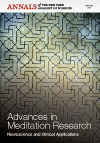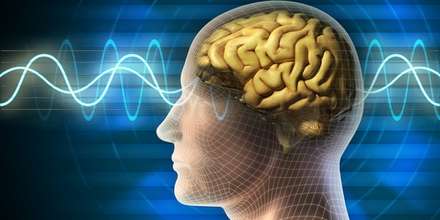
The resulting article, “Transcendental experiences during meditation practice“ was published in Annals of the New York Academy of Sciences special issue (January 2014) dedicated to advances in meditation research.
‘Absence of time, space, and body sense’
Dr. Travis, from the Center for Brain, Consciousness, and Cognition at Maharishi University of Management, reports how different meditations have different effects – one potential effect being transcendental experiences, a sense of self-awareness without other sensations.
The abstract of Dr. Travis’s paper reads:
“This article explores transcendental experiences during meditation practice and the integration of transcendental experiences and the unfolding of higher states of consciousness with waking, dreaming, and sleeping. The subject/object relationship during transcendental experiences is characterized by the absence of time, space, and body sense—the framework that gives meaning to waking experiences.
Physiologically, transcendental experiences during Transcendental Meditation practice are marked by slow inhalation, along with autonomic orientation at the onset of breath changes and heightened α1 (8–10 Hz) frontal coherence.

The integration of transcendental experiences with waking, dreaming, and sleeping is also marked by distinct subjective and objective markers. This integrated state, called Cosmic Consciousness in the Vedic tradition, is subjectively marked by inner self-awareness coexisting with waking, sleeping, and dreaming. Physiologically, Cosmic Consciousness is marked by the coexistence of α1 electroencephalography (EEG) with delta EEG during deep sleep, and higher brain integration, greater emotional stability, and decreased anxiety during challenging tasks.
Transcendental experiences may be the engine that fosters higher human development.“
Academic reference:
Travis, Frederick. “Transcendental experiences during meditation practice,“ Annals of the New York Academy of Sciences, Volume 1307, pages 1–8, January 2014.
View full article


















